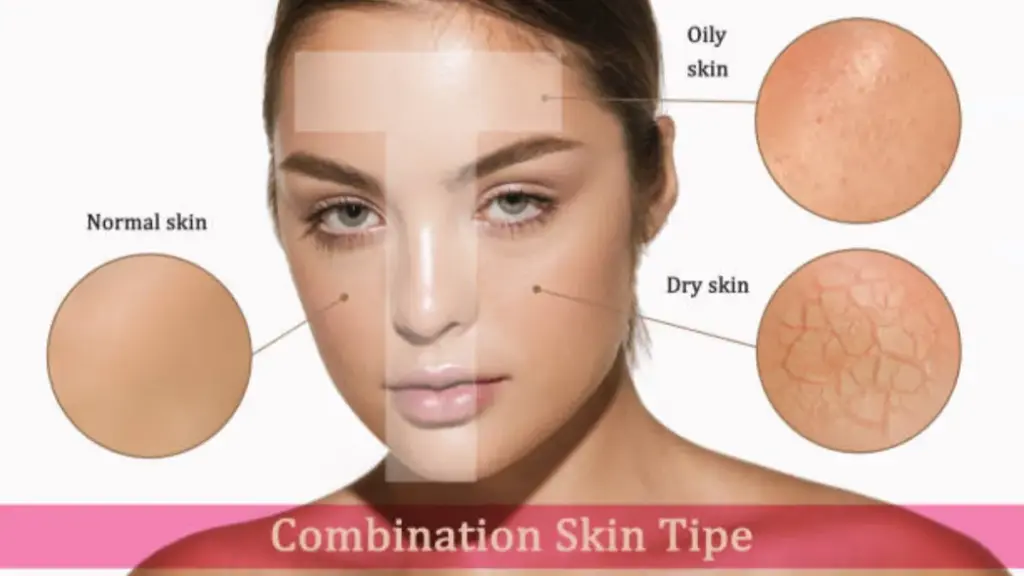
Custom formulation transforms how beauty brands create products. It lets you design beauty products aligned with your vision and your customers’ needs. By choosing custom formulations, you can stand out in a crowded market. Personalized skincare solutions tailored to individual skin concerns are increasingly popular. Brands like Function of Beauty show how customization drives demand for unique products. You gain a competitive edge by offering beauty products that reflect your brand’s identity and meet specific consumer preferences.
Understanding Custom Formulation in Beauty Manufacturing

What Is Custom Formulation?
Custom formulation is the process of designing unique beauty products from scratch. It gives you complete control over the ingredients, texturas, and performance of your cosmetics. Unlike off-the-shelf solutions, custom formulation allows you to create products that align perfectly with your brand’s identity and meet the specific needs of your target audience. Whether you want to develop a skincare line with bioengineered peptides for anti-aging or a hair care product tailored to specific hair types, custom formulation makes it possible.
The beauty industry is rapidly evolving, with the global market for custom formulation projected to grow significantly.
Market Attribute | Valor |
|---|---|
Market size value in 2024 | |
Revenue forecast in 2030 | USD 37.1 bilhão |
Growth Rate | CAGR of 8.5% (2024-2030) |
This growth reflects the increasing demand for personalized beauty products that cater to individual preferences and concerns. By investing in custom formulation, you can stay ahead of the curve and deliver innovative solutions that resonate with your customers.
Custom Formulation vs. Private Label Cosmetics
When deciding between custom formulation and private label cosmetics, it’s essential to understand their differences. Custom formulation offers unparalleled flexibility, allowing you to design products tailored to your brand’s vision. You can choose every ingredient, textura, and scent to create a truly unique product. No entanto, this process requires more time and resources, as it involves extensive research, development, and testing.
In contrast, private label cosmetics provide a quicker route to market. These products are pre-formulated and ready for branding, making them ideal if you want to launch your line quickly. No entanto, customization options are limited, and you may have less control over the final product.
Aspecto | Formulação Personalizada | Private Label Cosmetics |
|---|---|---|
Formulation Control | High control over ingredients and formulation | Limited control, pre-formulated products |
Customization Options | Tailored products to specific needs | Quicker market entry with less customization |
Development Time | Faster, ready-to-brand products available |
Custom formulation allows you to innovate and create products that stand out in the crowded beauty market. Private label cosmetics, while convenient, may not offer the same level of differentiation.
Why Custom Formulation Matters for Beauty Brands
Custom formulation is a game-changer for beauty brands. It enables you to create products that address specific consumer needs, such as sensitive skin, antienvelhecimento, or hydration. This level of personalization builds trust and loyalty among your customers, as they feel the products are designed just for them.
The personalized beauty market is booming, with a valuation of USD 24.3 bilhão em 2023. It is expected to reach USD 68.7 bilhão por 2032, growing at a compound annual growth rate (Cagr) de 12.5%. This growth highlights the increasing consumer demand for customized formula cosmetics that deliver targeted results.
Custom formulation also allows you to leverage cutting-edge technologies like biotechnology and synthetic biology. These advancements enable the creation of innovative ingredients, such as bioengineered peptides that stimulate collagen production or synthetic compounds that enhance product functionality.
Beneficiar | Descrição |
|---|---|
Ingredientes inovadores | Biotechnology enables the development of bioengineered peptides that stimulate collagen production for anti-aging. |
Enhanced Functionality | Synthetic biology allows for the creation of novel compounds, expanding ingredient possibilities beyond natural limits. |
Consistent Quality | Biotech production ensures reliable quality and supply, reducing issues related to crop variability and environmental factors. |
Improved Safety | Ingredients can be designed to eliminate allergens, enhancing product safety for sensitive individuals. |
Strengthened Claims | Scientific backing for biotech ingredients allows brands to make strong, evidence-based claims about product benefits. |
By embracing custom formulation, you can differentiate your brand, atender às expectativas do consumidor, and establish a strong presence in the competitive beauty industry.
Key Strategies for Effective Custom Formulation
Harnessing Ingredient Synergy for Optimal Results
Ingredient synergy plays a vital role in creating effective custom formulation. By combining ingredients that complement each other, you can enhance the overall performance of your product. Por exemplo, pairing antioxidants like vitamin C with ferulic acid can boost their stability and efficacy, delivering better results for your customers. This approach ensures that each ingredient works harmoniously, amplifying the benefits of your formulation.
Studies show that ingredient synergy can significantly impact product performance. Por exemplo, antifouling agents demonstrate a 26% frequency of synergy, leading to effects that exceed predicted outcomes. This principle applies to beauty products as well. When you carefully select and combine ingredients, you create formulations that stand out in the market.
To achieve optimal synergy, collaborate with experienced chemists who understand the science behind ingredient interactions. This step ensures that your custom formulation delivers maximum benefits while maintaining safety and stability.
Balancing Aesthetic Appeal with Product Functionality
A successful custom formulation must balance visual appeal with practical performance. Customers are drawn to products that look and feel luxurious, but they also expect them to work effectively. Por exemplo, a lightweight moisturizer with a silky texture not only feels pleasant but also hydrates the skin deeply.
Design studies highlight the importance of this balance. Produtos como the iPhone demonstrate how sleek design and functionality can coexist. De forma similar, in beauty manufacturing, you can achieve this by focusing on intuitive packaging, appealing textures, and pleasant scents. Um limpo, minimalist design can evoke trust, while a well-formulated product ensures customer satisfaction.
To strike this balance, consider revising textures or scents during the development process. This refinement ensures that your product aligns with your brand identity while meeting consumer expectations.
Conducting Stability and Compatibility Testing
Stability and compatibility testing are essential for ensuring the longevity and safety of your custom formulation. These tests evaluate how your product performs under different conditions, such as temperature changes or prolonged storage. They also ensure that your formulation remains effective and safe throughout its shelf life.
A robust testing protocol includes assessing physical, químico, and microbiological attributes. Por exemplo, the World Health Organization (QUEM) recommends testing products in their final packaging to simulate real-world conditions. This step helps identify potential issues, such as ingredient separation or changes in texture, before the product reaches the market.
By conducting thorough testing, you can guarantee that your custom formulation meets regulatory standards and delivers consistent quality. This process not only protects your brand reputation but also builds trust with your customers.
Incorporating Market Trends and Consumer Insights
Market trends and consumer insights play a crucial role in creating a successful bespoke formulation. By understanding what your audience wants and staying ahead of industry shifts, you can design products that resonate with your customers and stand out in the beauty market.
Tracking trends allows you to anticipate changes and position your brand as an innovator. Por exemplo, the growing demand for clean beauty products has led many brands to focus on formulations free from harmful chemicals. By aligning your unique formulation with such trends, you can attract eco-conscious consumers and build trust. Consumer insights also reveal preferences for specific textures, aromas, or packaging styles, helping you refine your product to meet expectations.
Analyzing market data provides several benefits:
Businesses can develop proactive strategies to capitalize on emerging trends.
Competitor analysis helps you understand their actions and position your brand effectively.
Trend analysis uncovers underserved niches, enabling you to create tailored offerings.
Tracking consumer behavior inspires innovative ideas for products and marketing.
Monitoring technological advancements can lead to process improvements and better customer experiences.
Por exemplo, if your target audience values sustainability, you can incorporate biodegradable packaging and eco-friendly ingredients into your formulation. De forma similar, if data shows a preference for multi-functional products, you can create a bespoke formulation that combines hydration, antienvelhecimento, and sun protection in one product.
By leveraging these insights, you ensure your formulations align with market demands while maintaining your brand’s identity. This approach not only enhances customer satisfaction but also strengthens your position in the competitive beauty industry.
Step-by-Step Guide to Custom Formulation
Defining Your Brand Vision and Product Goals
The first step in the custom formulating process is defining your brand vision and product goals. This step sets the foundation for creating beauty products that align with your identity and resonate with your target audience. Start by asking yourself key questions: What values does your brand represent? What unique problems do you want your cosmetics to solve?
A clear vision helps you focus on creating products that stand out in the competitive beauty market. Por exemplo, if your brand emphasizes sustainability, you might prioritize eco-friendly ingredients and biodegradable packaging. If your goal is to address specific skin concerns, such as acne or aging, your formulation should include active ingredients like salicylic acid or retinol.
Quantitative market data can guide this process. Analisando tendências e preferências do consumidor, you can align your formulation strategies with market demands. Por exemplo:
Use data to identify gaps in the market, such as a lack of multi-functional products.
Establish key performance indicators (KPIs) to measure the success of your formulations.
Monitor these KPIs over time to refine your approach and ensure your products meet consumer expectations.
By defining your vision and goals early, you create a roadmap for developing cosmetics that reflect your brand’s identity and meet customer needs.
Conducting Market Research and Competitor Analysis
Market research and competitor analysis are critical for understanding your audience and positioning your beauty products effectively. This step involves gathering data on consumer preferences, industry trends, and competitor strategies.
Start by identifying your target market. Who are your ideal customers? What are their pain points, and how can your custom formulation address them? Use surveys, grupos focais, and social media analytics to gather insights.
Competitor analysis provides additional context. By studying other brands, you can identify opportunities to differentiate your products. Key aspects to analyze include:
Aspecto | Descrição |
|---|---|
Target Market | A description of your company’s target market. |
Product Comparison | Details about your product or service versus the competitors’. |
Quota de mercado | Current and projected market share, sales, and revenues. |
Pricing Comparison | A comparison of pricing strategies among competitors. |
Marketing Strategy Analysis | Analysis of marketing and social media strategies employed by competitors. |
Customer Ratings | Differences in customer ratings between your product and competitors’. |
This analysis helps you refine your custom formulation to fill gaps in the market. Por exemplo, if competitors lack clean beauty options, you can focus on creating cosmetics free from harmful chemicals.
A detailed process map can also clarify your research approach:
Identify the process and its objectives.
Gather information to create a visual representation of the workflow.
Use this map to highlight areas for improvement and ensure your research aligns with your brand goals.
By combining market research with competitor analysis, you gain valuable insights to guide your custom formulating process.
Collaborating with Chemists and R&D Teams
Collaboration with chemists and R&D teams is essential for turning your vision into reality. These experts bring technical knowledge and experience to the custom formulation process, ensuring your products meet quality and safety standards.
Effective collaboration begins with clear communication. Share your brand vision, product goals, and market research findings with your team. This alignment helps chemists understand your objectives and tailor formulations to meet them.
Case studies highlight the benefits of collaboration. Por exemplo, a partnership between Selvita and CAS Custom Services led to the development of a machine learning solution that optimized organic synthesis workflows. De forma similar, Sandoz worked with CAS to build custom R&D capabilities, resulting in high-quality, affordable medicines. These examples demonstrate how teamwork can enhance innovation and efficiency.
Leverage formulation data to streamline development. By analyzing ingredient interactions and performance metrics, chemists can create effective and stable products faster. This approach reduces risks and ensures your cosmetics deliver consistent results.
Regular feedback loops also play a vital role. Test prototypes with your team and gather input to refine the formulation. This iterative process ensures your beauty products meet consumer expectations while maintaining safety and efficacy.
By fostering collaboration with chemists and R&D teams, you can bring your custom formulation to life and create cosmetics that stand out in the beauty industry.
Prototyping, Teste, and Refining Formulations
Prototyping is the first step in transforming your custom formulation concept into a tangible product. This stage involves creating small batches of your formulation to test its performance, textura, and overall appeal. By experimenting with different ingredient combinations, you can refine your product until it meets your brand’s vision and consumer expectations.
Testing plays a critical role in ensuring your formulation delivers on its promises. Teste de estabilidade, por exemplo, evaluates how your product holds up under various conditions, such as temperature fluctuations or prolonged storage. This process helps identify potential issues like ingredient separation or changes in texture. Microbial testing ensures your formulation remains safe from contamination, while patch testing checks for potential skin reactions, especially for sensitive skin types.
Refining your formulation is an iterative process. After testing, you gather feedback from chemists, R&D teams, and even focus groups to make necessary adjustments. Por exemplo, if a prototype moisturizer feels too greasy, you can tweak the oil-to-water ratio to achieve a lighter texture. This step ensures your final product not only performs well but also aligns with your brand identity.
Dica: Always document each iteration of your formulation. This practice helps you track changes and ensures consistency in future production.
Ensuring Quality Assurance and Scalable Production
Quality assurance (QA) is essential for maintaining the integrity of your custom formulation. It involves rigorous testing to ensure your product meets safety, eficácia, and consistency standards. Key QA metrics include efficacy trials, stability studies, and batch-to-batch consistency checks. These measures guarantee that your product performs as intended and remains stable over time.
Tipo de métrica | Descrição |
|---|---|
Efficacy Trials | Empirical evidence from real users under controlled conditions measuring product effectiveness. |
Stability Studies | Tests that monitor product changes over time under various environmental conditions. |
Teste microbiano | Assessment of product safety against microbial contamination and effectiveness of preservatives. |
Consumer Perception Studies | Evaluation of user experience and satisfaction with product attributes like texture and fragrance. |
Batch-to-Batch Consistency | Ensures each production batch meets the original formulation standards through analytical techniques. |
Patch Testing | Identifies potential skin reactions to products, ensuring safety for sensitive skin types. |
SPF Determination | In vitro testing to measure the sun protection factor of sunscreen formulations. |
Photostability Assessment | Evaluates the stability of sunscreen under UV light exposure to ensure effectiveness over time. |
Scalable production ensures your custom formulation can transition from small batches to large-scale manufacturing without compromising quality. This step requires close collaboration with your manufacturing partner. Por exemplo, Oully’s FDA- and ISO-certified facility ensures that every batch adheres to strict quality standards, whether you’re producing 500 units or 50,000.
Real-world examples highlight the importance of QA and scalability. Sunscreen formulations undergo SPF determination and photostability assessments to ensure they provide reliable UV protection. Vitamin C serums face accelerated stability testing to confirm their potency under challenging conditions. Anti-aging serums rely on efficacy trials to demonstrate visible improvements in fine lines and wrinkles. These steps validate the effectiveness of your formulation and build consumer trust.
Observação: Partnering with a manufacturer experienced in custom formulation can streamline the QA and production process, economizando tempo e recursos.
By prioritizing quality assurance and scalability, you can confidently bring your custom formulation to market, knowing it meets the highest standards of safety and performance.
Compliance and Legal Considerations in Custom Formulation
Navigating Regulatory Standards (Por exemplo, FDA, EU)
Understanding and adhering to regulatory standards is crucial when developing custom cosmetics. These regulations ensure your products meet safety, qualidade, and efficacy requirements, protecting both your brand and your customers. Nos EUA, the FDA oversees cosmetics, requiring compliance with the Federal Food, Drug, and Cosmetic Act (FD&C Act). In the EU, the Cosmetic Products Regulation (EC) No 1223/2009 governs product safety and labeling.
To navigate these standards effectively, you must document every step of your formulation process. Por exemplo, the FDA mandates that data conform to CDISC SDTM standards, ensuring integrity and consistency. De forma similar, the EU emphasizes robust quality management systems under its Medical Device Regulation (MDR) and In Vitro Diagnostic Regulation (IVDR).
Regulation | Descrição |
|---|---|
Requires documentation of algorithmic decision-making processes for AI-driven devices. | |
Transition to QMSR | Focuses on ISO 13485:2016 compliance for quality management throughout the product lifecycle. |
EU IVDR and MDR | Emphasizes quality management systems for medical and diagnostic devices. |
By staying informed about these requirements, you can ensure your cosmetics meet global standards, reducing the risk of recalls or legal issues.
Protecting Intellectual Property and Trade Secrets
Your custom formulation represents your brand’s innovation and creativity. Protecting it from competitors is essential. Intellectual property (IP) laws, such as patents and trademarks, safeguard your unique formulations and branding elements. Por exemplo, you can patent a groundbreaking ingredient combination or trademark your product’s name and logo.
Trade secrets also play a vital role. These include proprietary methods, ingredient ratios, or unique processes that give your cosmetics a competitive edge. To protect these secrets, implement strict confidentiality agreements with your team and partners. Regularly review your contracts to ensure they cover all aspects of your formulation process.
Dica: Keep detailed records of your formulation development. This documentation can serve as evidence in case of IP disputes.
By prioritizing IP protection, you secure your brand’s innovations and maintain your market position.
Ensuring Accurate Labeling and Marketing Claims
Accurate labeling and marketing claims are not just ethical—they are legally required. Misleading claims can lead to regulatory penalties and damage your brand’s reputation. The FDA’s Cosmetics Labeling Guide outlines the rules for ingredient lists, product names, and usage instructions. Por exemplo, labels must clearly state whether a product is for external use only or contains allergens.
Marketing claims must also align with your product’s proven benefits. If you claim your moisturizer reduces wrinkles, you need scientific evidence to back it up. Regulatory bodies like the FDA and USDA enforce these standards to protect consumers.
Fonte | Descrição |
|---|---|
Cosmetics Labeling Guide | Details labeling requirements under the FD&C Act and FP&L Act. |
Labeling Resources | Explains enforcement of labeling standards to avoid legal complications. |
By ensuring your labels and claims comply with regulations, you build trust with your customers and avoid costly legal challenges.
Leveraging Custom Formulation for Market Differentiation

Creating a Unique Selling Proposition (USP)
Custom formulation empowers you to craft a unique selling proposition (USP) that sets your beauty products apart. By focusing on innovation, you can create formulations that highlight your brand’s strengths and address specific consumer needs. Por exemplo, a moisturizer infused with bioengineered peptides can position your brand as a leader in anti-aging solutions.
Market analysis plays a key role in defining your USP. You can identify gaps in the market and differentiate your products by analyzing competitor offerings, surveying potential customers, and leveraging data analytics.
Market analysis provides a holistic view of the competitive landscape, enabling enterprises to identify gaps and opportunities for growth, thus allowing businesses to differentiate themselves and gain a competitive edge.
A well-defined USP not only helps consumers recognize your brand but also fosters a favorable perception. This differentiation builds trust and enhances brand recall, especially in product categories driven by technological innovation.
Building Brand Loyalty Through Personalization
Personalized formulation strengthens brand loyalty by addressing individual consumer needs. When you offer products tailored to specific skin types or concerns, customers feel valued and understood. Por exemplo, a personalized serum targeting acne-prone skin can create a deeper connection with your audience.
Statistics validate the effectiveness of personalization:
Estatística | Implication |
|---|---|
71% of consumers expect personalized interactions from brands | Brands that excel in personalization see a 40% increase in revenue compared to competitors. |
91% of consumers are more likely to shop with brands that recognize them | Recognition and relevant offers enhance consumer loyalty and repeat purchases. |
75% of consumers expect brands to anticipate their needs | Anticipating needs leads to stronger connections and loyalty among consumers. |
By leveraging personalized formulation, you can anticipate customer needs and deliver products that resonate with them. This approach not only boosts revenue but also fosters long-term loyalty.
Using Storytelling to Showcase Formulation Innovation
Storytelling transforms how you present your custom formulation to the market. By sharing the journey behind your products, you can captivate your audience and highlight your brand’s innovation. Por exemplo, you can narrate how your team overcame challenges to develop a groundbreaking sunscreen with enhanced photostability.
Case studies demonstrate the power of storytelling:
Empresa | Strategy Employed | Tactics | Outcomes |
|---|---|---|---|
A Global Technology Firm | Used authentic storytelling to highlight risks and breakthroughs in technology. | Crafted a narrative intertwining founding vision with market challenges; shared stories of failures and successes. | Enhanced employee morale; strengthened investor confidence; increased media attention and accolades. |
A Well-Known Consumer Brand | Built a rebranding initiative on a story of transformation. | Developed a narrative showcasing the brand’s journey; utilized visual storytelling through video and social media. | Improved market share; attracted a younger demographic; achieved significant positive media coverage. |
Your storytelling should focus on authenticity and innovation. Share the science behind your formulations, the challenges you faced, and the breakthroughs you achieved. This narrative builds trust and positions your brand as a pioneer in the beauty industry.
Oully’s Expertise in Custom Formulation
Overview of Oully’s Custom Formulation Services
Oully specializes in creating tailored solutions for beauty brands through its custom formulation services. You gain access to a team of experts who design unique formulations that align with your brand’s vision. Whether you need skincare, Cuidado com o cabelo, or men’s grooming products, Oully offers end-to-end support. Seu fda-, Iso-, and cGMP-certified facility ensures every product meets the highest safety and quality standards.
The company’s approach emphasizes flexibility. You can customize every aspect of your cosmetics, from ingredients to packaging. This level of personalization allows you to create products that stand out in the competitive beauty market. Oully also provides low minimum order quantities (MOQS) e tempos rápidos de reviravolta na produção, making it easier for emerging brands to launch their custom products efficiently.
Benefits of Partnering with Oully for Private Label Cosmetics
Collaborating with Oully offers several advantages for private label cosmetics. Their extensive experience in the skincare industry ensures high-quality products and valuable insights into market trends. You benefit from smooth communication throughout the manufacturing process, thanks to their strong customer service focus.
Oully’s expertise in private label solutions allows for seamless customization, Da formulação à embalagem.
Their team provides guidance on ingredient selection, ensuring your products meet consumer preferences and industry standards.
You gain access to innovative technologies that enhance product performance and differentiation.
Em parceria com Oully, you can create cosmetics that reflect your brand’s identity while meeting the demands of today’s beauty consumers.
Oully’s Commitment to Quality, Inovação, and Sustainability
Oully prioritizes quality and environmental responsibility in every aspect of its operations. Rigorous testing procedures ensure your formulations are safe, eficaz, e consistente. The company adheres to international safety standards, giving you confidence in the reliability of your products.
Sustainability is at the core of Oully’s practices. Their cruelty-free and eco-friendly approach minimizes environmental impact while maintaining high product quality. You can incorporate biodegradable packaging and sustainable ingredients into your formulations, aligning your brand with the growing demand for ethical beauty products.
Oully’s commitment to innovation drives the development of cutting-edge formulations. By leveraging advanced technologies, they help you create cosmetics that deliver exceptional results and resonate with your target audience.
Custom formulation transforms how you create beauty products. It allows you to design unique solutions that reflect your brand’s identity and meet specific consumer needs. By focusing on ingredient synergy, estabilidade, and testing, you ensure your products deliver exceptional results. Balancing aesthetics with functionality enhances appeal, while offering tailored products gives you a competitive edge. Custom formulation also serves as a powerful marketing tool, helping you connect with your audience and establish a strong presence. Explore this innovative approach to differentiate your brand and achieve lasting market success.
Perguntas frequentes
What is the difference between custom formulation and private label products?
Custom formulation allows you to create unique products tailored to your brand’s vision and customer needs. Private label products, por outro lado, are pre-made formulations that you can brand as your own. Custom formulation offers more control and innovation, while private label is faster to market.
How long does the custom formulation process take?
The timeline varies based on complexity. On average, it takes 6-12 weeks to develop a custom formulation. This includes research, prototyping, teste, and finalizing the product. Partnering with an experienced manufacturer like Oully can streamline the process for faster results.
Can small businesses afford custom formulation?
Sim, many manufacturers, including Oully, offer low minimum order quantities (MOQS) and flexible pricing. This makes custom formulation accessible for small businesses. You can start with smaller batches to test the market before scaling up production.
Are custom formulations safe for sensitive skin?
Custom formulations can be designed specifically for sensitive skin. You can choose hypoallergenic ingredients and avoid common irritants. Rigorous testing ensures the product is safe and effective for your target audience.
How do I protect my custom formulation from being copied?
You can protect your formulation through intellectual property measures like patents and trade secrets. Confidentiality agreements with your manufacturer and team also safeguard your proprietary information. Keeping detailed records of your development process strengthens your legal protection.
















